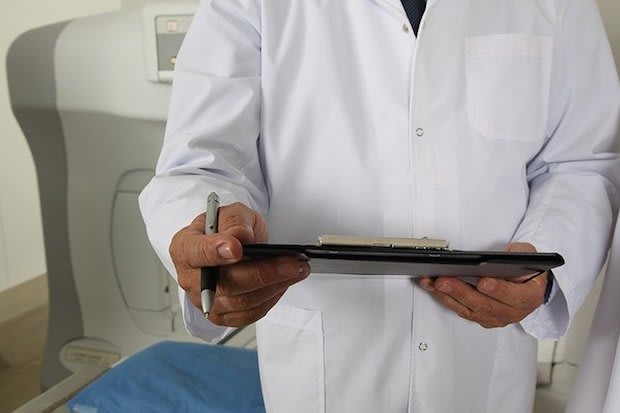Table of Contents
III. Why Does Menopause Occur?
IV. Is Hormone Therapy Right For Me?
V. The Importance of Estrogen During Menopause
Life Changes
The body goes through a lot of changes as we age. The majority of these changes are due to changing hormones in the body. Women, more than men, experience many hormone fluctuations because of childbirth and menstrual cycles. Estrogen and progesterone are two of the most common female sex hormones responsible for menstrual cycle regulation, bone growth and rejuvenation, sleeping habits, and metabolism.
During a woman’s life, hormones go up and down because of puberty and childbirth but change extensively when women go through perimenopause and menopause. The transition to menopause begins several years before full menopause, and this is known as perimenopause. During this time, women will have symptoms, including:
- Breast tenderness
- Lower sex drive
- Irregular periods
- Urine leakage
- Hot flashes
If you are a woman in your early 40s, you may begin to experience irregular periods and a few of the above symptoms. [1] Full menopause is reached when the ovaries stop releasing eggs and menstrual cycles no longer occur for 12 months. At this stage, women are no longer able to have children. Ovarian estrogen production comes to a halt, resulting in more intense symptoms.
If your estrogen production is affecting your everyday life, you may be prescribed hormone replacement drugs, such as Estraderm (estradiol), Climara (estradiol), and Prometrium (progesterone). Read on to learn more about the role of estrogen and the effect of menopause on the body. [2]
Menopausal symptoms vary significantly from woman to woman. On average, an American woman reaches menopause before or around the age of 52. Some of the most common symptoms include: Hot flashes: Hot flashes are one of the most common symptoms of menopause. They make your skin feel warm and hot for no reason. Hot flashes come on suddenly and can cause the skin to redden, and your heart rate may accelerate. Night sweats occur while a woman is sleeping. Intense night sweats can wake a woman up at night. Mood changes: Many factors can affect a woman’s mood, but menopausal symptoms can occur because of hormone changes. If you already suffer from anxiety or depression, these conditions may worsen during menopause. It is important to seek out your doctor if you notice prolonged changes in your mood. Physical changes: Several physical changes may occur, including weight gain and hair changes. When estrogen production stops, hair and skin may become thinner and drier. Your metabolism may slow and cause weight gain. Stiff joints are also a common symptom. Sex drive: A lowered sex drive is common during menopause. It is important to maintain communication with your partner if you are feeling differently about sex. Vaginal dryness may also occur, which may make sex hurt. There are many over-the-counter personal lubricants to assist with this physical symptom. [3] Menopause typically occurs naturally when women reach a certain age, but it can occur for several other reasons, including: Oophorectomy (ovary removal): The ovaries are responsible for estrogen and progesterone production, and their removal causes immediate menopause. This surgery may occur if a woman has an increased risk for ovarian cancer and no longer expects to have children. A hysterectomy is the removal of just the uterus. The ovaries are left in the body and still release eggs, so menopause isn’t immediate. Chemotherapy & radiation therapy: Intensive cancer therapies can significantly impact female fertility. Regardless of age, they can cause hot flashes during and after treatment. Fertility is typically stunted during cancer treatment, but it is not always permanent. Radiation therapy typically focuses on one part of the body, so menopause is not usually affected. Primary ovarian insufficiency: This condition can result in premature menopause in women younger than 40. Primary ovarian insufficiency affects around one percent of women. Premature menopause occurs due to an insufficient amount of reproductive hormone production from the ovaries. Hormone therapy medications like Estraderm (estradiol), Climara (estradiol), and Prometrium (progesterone) can be used to help prolong a woman’s fertility. [2] Hormone replacement therapy is a decision made between a woman and her healthcare provider. There is no one size fits all cure for severe menopausal symptoms, and women may have to try several types of medications before they find one that is right for them. In general, HRT should be taken at low doses to make sure you do not experience any side effects. You should consider the following questions before considering hormone replacement therapy: You are at an increased risk of gallbladder and liver problems when using HRT. Gallbladder disease is more common in post-menopausal women, and women who take HRT are at a higher risk of this disease than women who never start HRT. If you already have chronic liver disease and go through menopause, doctors typically discourage hormone therapy because it may worsen your liver disease. [5] There are three estrogens present in the female body: estrone, estradiol, and estriol. Estrone is a weaker form of estrogen that is present in the body after menopause. Estradiol is present in both males and females and is present most often in females during their reproductive years. During pregnancy, estriol levels spike and help the uterus grow and prepare for delivery. Maintaining estrogen levels in the body is essential to a woman’s mood and body function. Supplementary medications are needed if women notice many changes in their everyday life. Everyone’s estrogen levels are different, but it affects the female body in the following ways: Breasts: Estrogen is integral in breast tissue development. Estrogen also helps stop the flow of breast milk when a woman is weaning her child. Vagina: Estrogen maintains the thickness and lubrication of the vaginal wall. Ovaries: Estrogen is produced in the ovaries and stimulates the growth of egg follicles. Uterus: The proper amount of estrogen promotes the maintenance of the mucous membrane that lines the uterus. It also regulates the thickness of uterine mucus secretions. [6] The content provided in this article is based on thorough research and in some cases, reviewed by a medical professional. Our goal for the information is to provide helpful, general health informational. It is not intended as a substitute for professional medical advice.
Menopausal Symptoms
Why Does Menopause Occur?

Is Hormone Therapy Right for Me?

The Importance of Estrogen During Menopause
